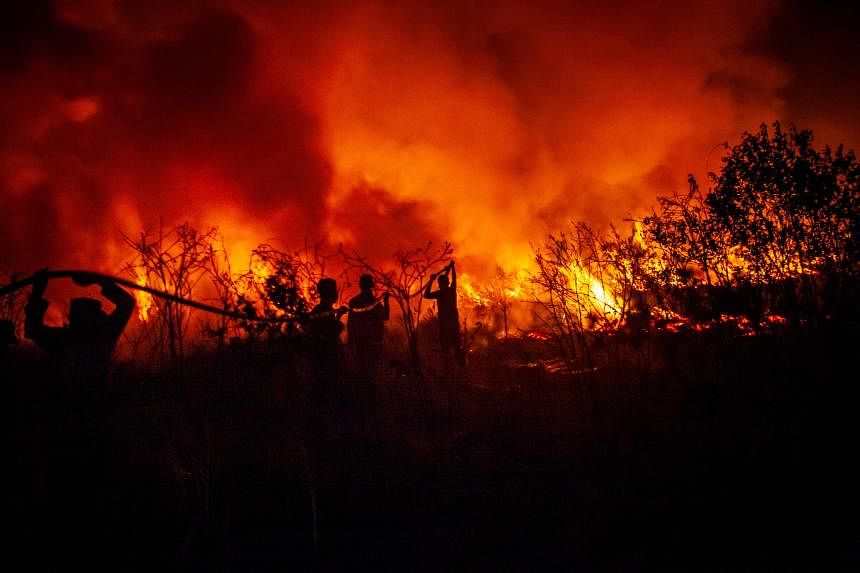JAKARTA – Cooperation between all affected countries, including Singapore, is critical in combating the haze problem, said Indonesia’s Ambassador to Singapore Suryo Pratomo.
“What we should do is find a way out together,” he told The Straits Times in response to queries regarding the current haze situation.
Mr Suryo said on Tuesday that all relevant authorities in Indonesia, including the regional government in Sumatra, are working together to overcome the haze situation.
“Everyone is working hard to deal with the hot spots in Indonesia,” he said.
Singapore’s National Environment Agency in early September said it had noted a rise in activity at hot spots in Sumatra, with some producing plumes of smoke. It said that the prevailing dry weather was expected to continue over the southern and central parts of the Indonesian island.
This has the potential to escalate the hot spot and haze situation there, leading to hazy conditions affecting Singapore, the agency said, noting that 28 hot spots were detected on Sept 2.
ST reported on Tuesday that the increased number of hot spots in Kalimantan and Sumatra this week has raised the risk of transboundary haze returning to Singapore, but severe haze is not forecast for now.
According to the Weather and Climate Services for Asean, the number of hot spots spiked to 93 in Kalimantan and 62 in Sumatra on Monday, the highest in the last seven days.
Asean last faced serious transboundary haze in 2019 and 2015.
Mr Suryo said haze is a challenge not only for Indonesia but for other parts of the region as well, and encouraged all parties to work together to address this issue.
He noted that Malaysia’s air quality has also been affected, and pointed out that flashpoints have occurred in places like Sabah, Sarawak and Peninsular Malaysia.
Mr Suryo held up as a positive development regional efforts to tackle the haze, like the meeting of Asean’s Sub-Regional Ministerial Steering Committee (MSC) on Transboundary Haze Pollution on June 8.
The meeting, attended by ministers and officials from Brunei, Indonesia, Malaysia, Singapore, Thailand and the Asean Secretariat, was chaired by Minister for Sustainability and the Environment Grace Fu.
“The meeting noted that the dry season this year could be more prolonged and intense compared to the past three years when La Nina conditions were present, and that the risk of elevated hot spot activities and transboundary smoke haze occurrence was the highest since 2019,” said a release about the meeting.
“The MSC countries pledged to stay vigilant and intensify their fires monitoring and haze preventive efforts to minimise the occurrence of transboundary smoke haze during drier periods.”
Responding to ST queries on this meeting, a spokesman for the Ministry of Sustainability and the Environment (MSE) said on Thursday that this meeting was hosted and chaired by Singapore. It is one of two meetings Asean has had, with the other being the 18th Meeting of the Conference of Parties to the Asean Agreement on Transboundary Haze Pollution in Laos on Aug 23.
The MSE spokesman said that at both meetings, the Asean Specialised Meteorological Centre, which is based in Singapore, presented its latest findings and assessments on the region’s weather and smoke haze situation, as well as the regional outlook for the rest of the year.
“The haze meetings also took stock of national and regional preparations to prevent an outbreak of land and forest fires,” he added.


